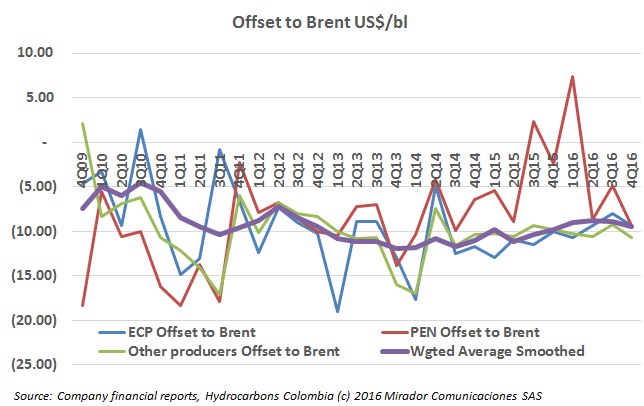The controversy about possible modifications to the General System of Royalties (SGR) continues. While academics and regional authorities reject the idea of allocating part of the royalties’ budget to finance ‘peace projects’, the government says that the proposal is in line with what the country is going through. These and other stories in our Royalties periodic summary.
Representatives of the 13 countries of the Operational Network for Regional Cooperation of Maritime Authorities of the Americas (Rocram) participated in a workshop about the implementation of anti-pollution treaties.
The history of the mining and oil industry in Colombia took a turn after the popular consultation that took place in Cajamarca last month. Industry expert Francisco Miranda analyzed the situation.
The Secretary of Finance of Barrancabermeja in an inspection process found some irregularities in Ecopetrol’stax return (NYSE: EC) during 2014 and 2015.
Senators Maritza Martínez (U party) and Jorge Robledo (Polo Democrático) called a debate to discuss the impacts of the extraction of non-conventional resources through fracking.
The sector is looking for options to increase oil production in the country and unconventional techniques are attractive for many companies. However, the government position about this issue is not clear.
The oil and mining sectors have contributed huge amounts of royalties to boost the country development.
In addition to considering that there could be a gas shortage in the country by 2018, the Comptroller General showed its concern about the effects that delays in the planning and implementation of new gas projects could have.

Last year was difficult for the sector because of the continued oil price decline. The industry had to adapt to this environment and learn to operate with the lowest price in 12 years.
The executive president of the Colombian Petroleum Association (ACP), Francisco Lloreda, called on Meta’s authorities to work together and help turn the industry’s crisis into an opportunity for the department.